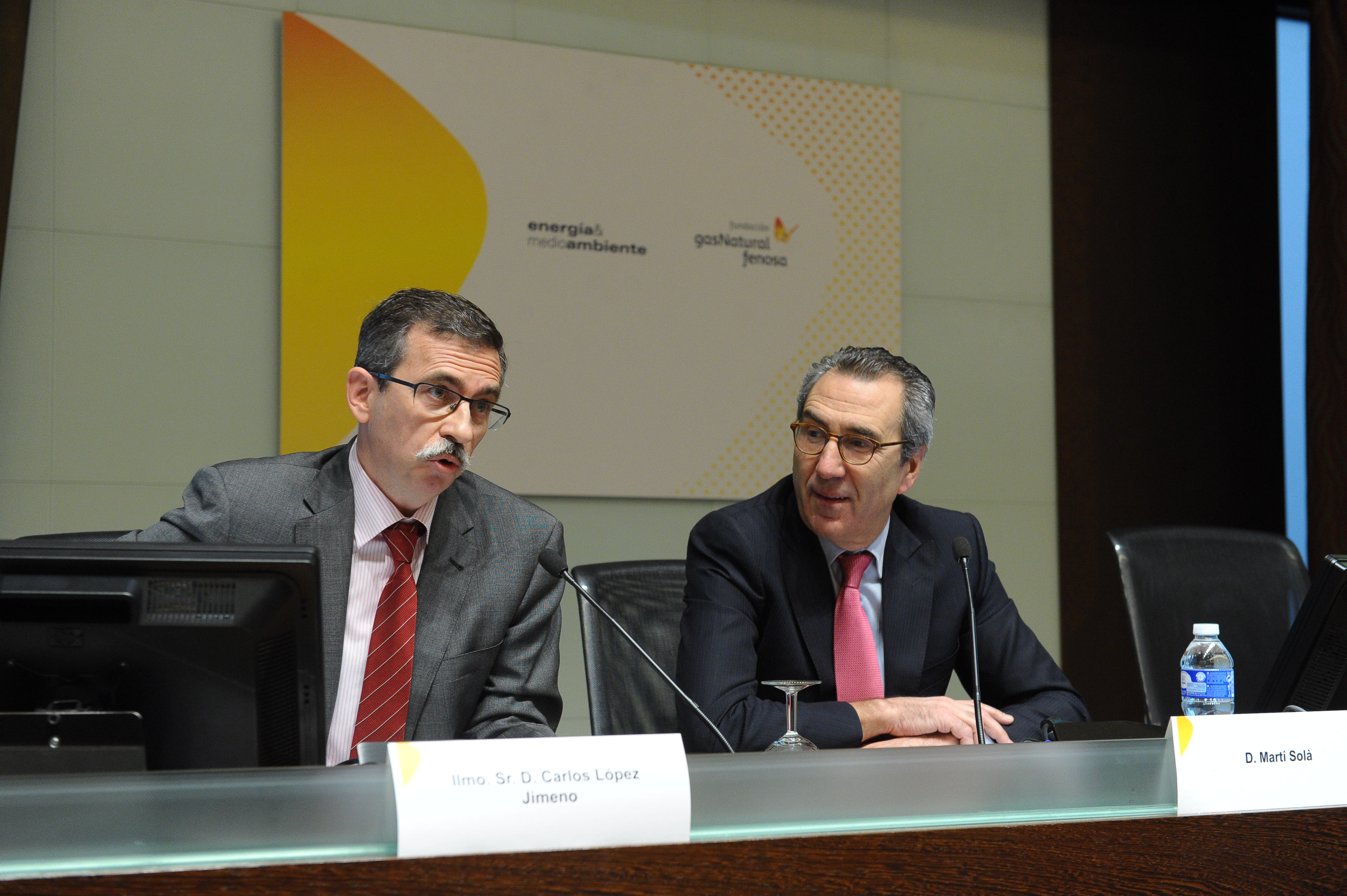Gas Natural Fenosa Foundation examines progress by smart cities in waste and water management, mobility and construction
Close to 200 professionals attended in Madrid the seminar entitled ‘Smart Cities: energy and environmental issues’, to examine the energy and environmental alternatives opened up by smart cities.

Earlier today, the Director-General for Industry, Energy and Mines of the Economic, Employment and Taxation Council of the Regional Government of Madrid, Carlos López Jimeno, and the Managing Director of the Gas Natural Fenosa Foundation, Martí Solà, officially opened the seminar entitled ‘Smart Cities: energy and environmental issues’.
During the course of the event, which was attended by close on 200 professionals, discussions took place on the energy and environmental alternatives opened up by smart cities capable of fully harnessing the new information and communication technologies (ICT) to improve urban services and quality of life for their inhabitants. The experts explained the advancements provided by these technologies for improving water and waste management, urban mobility and efficient building management.
The Director of the Transport Research Centre (TRANSyT) at the Polytechnic University of Madrid, Andrés Monzón, presented smart applications and systems in which the integration of ICT – from an intermodal point of view – allow road traffic and public transport management to be integrated so as to more efficiently manage mobility in urban areas. Intermodal information shared between transport system managers and the general public allows congestion, atmospheric pollution and greenhouse gas emissions to be reduced.
In turn, the Managing Director of the Building Technologies Division of Siemens Spain, Jesús María Daza, stressed that technology can be used to guarantee savings of between 30% and 40% in building energy consumption. He explained that this would involve converting buildings into smart and sustainable places. A smart building that generates and stores energy, interacts with smart power grids and is capable of handling its own energy demand and generation to minimise energy costs and CO2 emissions.
The Technical Councillor for Economic Affairs and Employment of the City Council of Madrid, Enrique López Galán, explained how a data acquisition and operation system (SAED) operates. These tools integrate all the information generated at the various stages of solid urban waste management in Madrid to then enable it to be used for technical, economic and administrative purposes. With over 3,340 tonnes per day of waste arriving, the waste technology park in Madrid recovers over 234 t/day of recyclable material, generates over 567 MWh per day of energy and injects over 16,574 Nm3 per day of biomethane into the gas network.
The Deputy Director for Treatment and the Environment of Canal de Isabel II, Miguel Ángel Gálvez, said that the Region of Madrid is a global benchmark in the installation of micro-turbines in the water for human consumption distribution networks. Their gradual implementation is a clear smart management model for the integrated water cycle through the distributed generation of electricity, achieving a production capacity in excess of 6,000 GWh/year, equivalent to an emissions reduction in excess of 1,000 tonnes of CO2 per year.
Cities need strategies
The professor from the Department of Transport and Territory of the Higher Technical School of Civil Engineering of the Polytechnic University of Madrid, Rosa María Arce, underlined the need for cities to establish strategies capable of successfully tackling and adapting to the process of change. To that end, many of the latest solutions involve information and communication technologies being applied to all sectors and in which the public voluntarily or involuntarily participates. Rosa María Arce recalled that this application of technological solutions, which makes cities “smarter”, should not forget that the main objective is social, economic and environmental sustainability, with the public – people – at the centre of all processes.
The Director for Engineering and Technological Innovation of GAS NATURAL FENOSA, Blanca Losada, discussed the roll-out of smart networks and distributed electricity generation technologies in cities as a way to improve city efficiency and sustainability. She said that, within this context, we are witnessing a process of transition from a centralised energy system – with a high level of quality and security – to a new model in which this reality coexists with numerous Distributed Energy Resources that integrate into an increasingly decentralised system as part of the dynamic and constantly evolving city framework.
Gas Natural Fenosa Foundation
The Gas Natural Fenosa Foundation, founded in 1992, works to promote information and training and raise social awareness of improvements in energy efficiency and technological innovation in the field of energy while respecting and protecting the environment. It promotes cultural activities through its Gas Museum that are aimed at preserving and publicising the sector's historical and cultural heritage. It also has a programme to support exports for small and medium-sized enterprises. Its international activities are carried out in Algeria, Argentina, Brazil, Colombia, Costa Rica, Mexico, Morocco, Italy, Moldova and South Africa.
Madrid, 24 February 2016.
Share